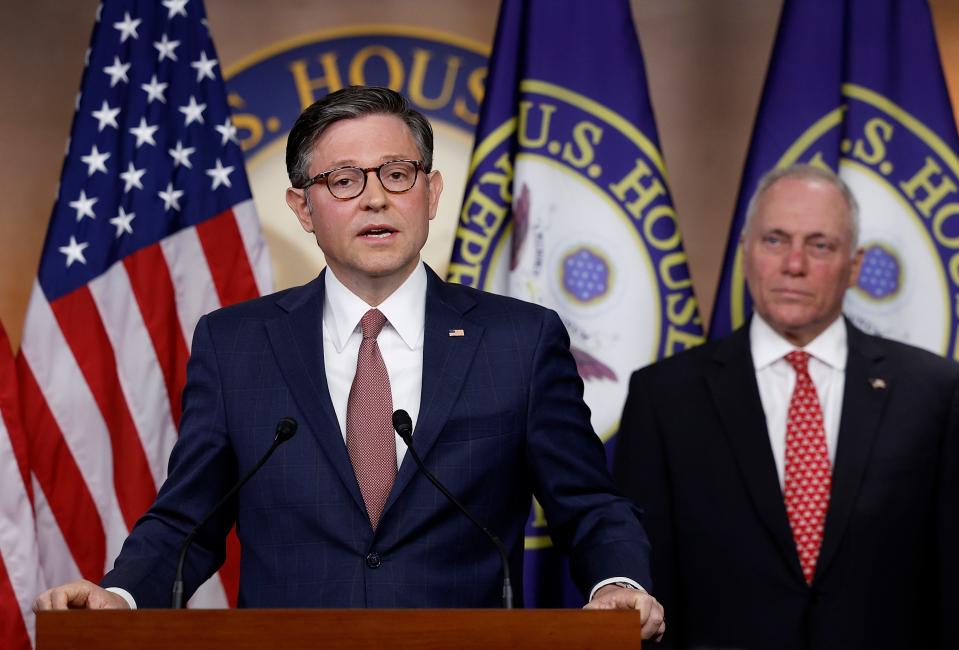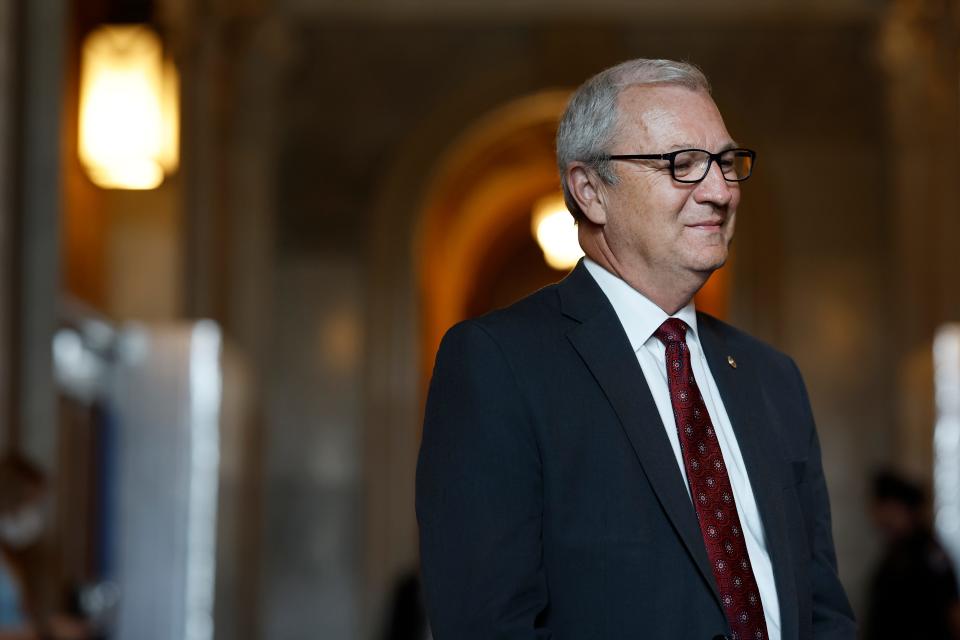Culture war clashes in Congress risk stalling must-pass bills
WASHINGTON – America's elected leaders are again headed toward a standoff on some of the most fundamental pieces of legislation they're required to pass every year: Keeping the government operating and protecting the country from its enemies.
Standoffs over these must-pass bills have become a familiar tradition in times of divided government. Things are no different in 2024 as the Republican-led House insists on challenging the Democrat-run Senate by stuffing controversial provisions into the most essential bits of legislative business hanging over the current Congress, which is a little more than six months from ending.
The U.S House last Friday passed its annual Pentagon policy bill – the National Defense Authorization Act. Though the bill is a traditionally bipartisan endeavor to green-light hundreds of billions of dollars in funding for the Defense Department, GOP lawmakers packed the legislation with "culture war" amendments targeting transgender health care policies, diversity programs and climate change initiatives.
All those provisions are dead on arrival in the Democrat-controlled Senate that champions those kinds of government efforts.
Almost the same exact thing happened in last year’s version of the NDAA, when that series of Republican-sponsored amendments got yanked out of the final compromise product that President Joe Biden ultimately signed into law in December.
“It’s a waste of time,” Rep. Jim McGovern, D-Mass., told USA TODAY. He's the top Democrat on the House Rules Committee, the panel that determines what amendments could potentially be tacked onto bills, and he accused Republicans of not being serious legislators.
House Republicans made a similar move earlier this month when the lower chamber passed one of 12 spending bills needed to fund the government. Their funding bill for military construction and veterans affairs passed along mostly party lines as Democrats decried the legislation for including numerous provisions that target abortion care, diversity programs and transgender care, among others.
More: Culture wars: House Republicans attack Defense Department for 'woke' social policies

Last year, Republicans didn’t secure most of the provisions they attached to the defense and spending bills, and the House’s most conservative members relentlessly criticized House Speaker Mike Johnson, R-La. They also accused leadership of ceding ground to Democrats.
“I hope the speaker, when it comes back from the Senate, will drive a harder bargain" than he did last year, said Rep. Ralph Norman, R-S.C., a member of the ultra conservative House Freedom Caucus.
Rep. Kevin Hern, R-Okla., said in an interview that the GOP-led amendments are very much part of the negotiating process in anticipation of an eventual compromise with their Democratic counterparts on the other end of Capitol Hill.
“We don’t need to go worry about what the Senate’s doing. We’re a different body,” Hern said. Asked if he had any confidence there could be a different outcome in 2024 where Republicans will be able to secure some of those provisions in the final product, Hern responded, without hesitation: "No.”
The partisan fighting has also taken a toll on some lawmakers.
Rep. Gabe Vasquez, D-N.M., one of the Democrats' most vulnerable members in the upcoming 2024 election, voted for last year’s version of the NDAA begrudgingly, despite the controversial culture war policy tacked on. He was in almost the same position this year, but he voted against the bill last week, saying he was “taking a stance.”
“This is all just a meaningless exercise the same way that it was last year in trying to inject partisan politics, toxic politics into the American discourse,” said Vasquez, whose district encompasses the southern portion of his state which has changed hands between Democrats and Republicans five times since 2008.
The chair of the House Democratic campaign arm, Rep. Suzan Delbene, D-Wash., has vowed that her party would go after Republicans on the campaign trail for supporting the controversial policy provisions. She's singled out GOP votes targeting abortion and reproductive care as key issues Democrats will continue to hammer Republicans over.
To their credit, the House is pushing through the must-pass bills in a more timely manner compared to last year and with an eye toward trying to beat the Sept. 30 end-of-fiscal-year deadline for funding the government.
House Majority Leader Steve Scalise, R-La., laid out an ambitious schedule last month that would see the lower chamber pass all the spending bills and the NDAA by August. The House is currently keeping pace with Scalise's timetable, but the much more controversial bills have yet to be considered.
While the House passed its version of the NDAA on Friday, the Senate just finished a week with meetings to consider how they would like to tackle the legislation.
Senate Minority Leader Mitch McConnell, R-Ky., said on the Senate floor that the chamber’s Armed Services Committee will consider “hundreds” of amendments to the defense policy bill.

“But one essential question hangs over both the NDAA and the appropriations process to come: Is Congress ready to fulfill our most fundamental responsibility of adequately providing for the common defense?” he asked.
McConnell argued that the White House’s budget proposal submitted earlier this year would effectively cut spending on national defense. He also took issue with Senate Democrats for insisting on the same top-line spending levels to cover both defense and nondefense portions of the federal government, meaning identical overall funding for the Pentagon and all of the U.S. programs that range from transportation to housing, education, the environment and social service programs.
The Senate version of the defense bill would increase Pentagon spending by $25 billion, a higher overall figure that Senate Majority Leader Chuck Schumer, D-N.Y., said Friday "reflects the bipartisan support to ensure robust funding for our national security."
Schumer added that the funding increase must be met with an equal increase in spending on programs that serve everyday Americans, citing a bipartisan agreement struck last year between Biden and then-House Speaker Kevin McCarthy, R-Calif., to raise the nation's debt limit in exchange for funding cuts.
For the moment, there’s no sign the Senate will grapple with the same culture war challenges coming from the House. Sen. Kevin Cramer, R-N.D., said he’s not worried that those policy add-ons from Republicans in the House will doom the bill in the Senate and expressed confidence the differences will be worked out.
“That’s why there’s two chambers, and why our founders thought to have that type of diversity of thought in the process,” he said. “At the end of the day, we always come together on the NDAA, and I expect this will be no exception.”
House GOP lawmakers also acknowledge as much, though it doesn’t dissuade some of the members pushing for their controversial amendments. “I’ll bring them back next year,” said Rep. Andy Ogles, R-Tenn.
This article originally appeared on USA TODAY: Culture war clashes in Congress risk stalling crucial bills


